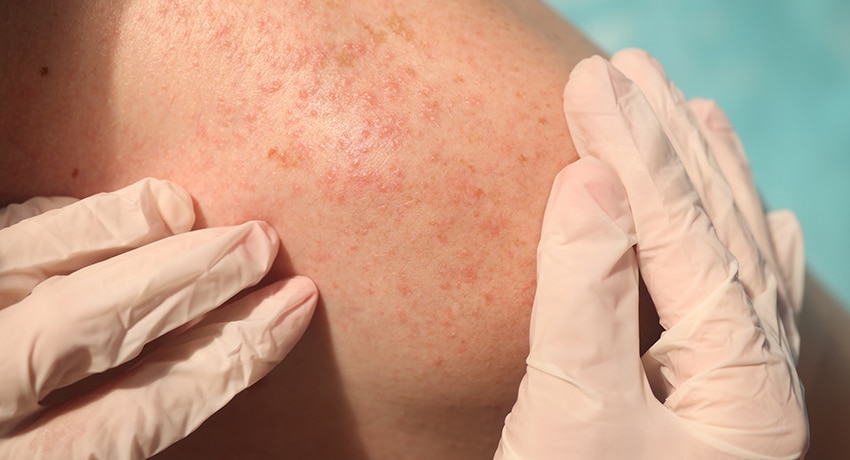After a nice relaxing day on the lake, there’s nothing worse than discovering a skin irritation. Unfortunately, cercarial dermatitis (also known as swimmer’s itch) is extremely common during the summer months. Thankfully, this parasitic infection is easily treatable and sometimes completely avoidable.
How is it contracted?

Typically, swimmer’s itch is contracted after spending time in freshwater lakes and ponds. The parasites are less likely to be found in salt water and cannot live in a properly chlorinated pool.
“Shallow or marshy waters have the highest risk of carrying parasites,” shared Elena N. Zamora, MD, family medicine expert with UT Physicians. “It’s best to avoid bodies of water that appear cloudy or have a thin layer of film on top.”
Symptoms from an infection can arise within a few hours after being exposed. A rash will develop on the exposed areas, followed by itching, burning, and the appearance of small red spots. These effects last for approximately one week and gradually fade.
How to treat it?
Treatment for swimmer’s itch can be as simple as over-the-counter steroid creams or a paste made from baking soda and water. Allergy medicines are helpful to reduce incessant itching.
Zamora, assistant professor in the Department of Family and Community Medicine at McGovern Medical School at UTHealth Houston, stresses the best course of action after you develop an infection is to not revisit that particular body of water.
“Because swimmer’s itch is an allergic reaction to the parasite, itching and a rash may be more severe with repetitive infections,” she explained. “The more exposures you experience, the quicker the onset of its symptoms.”
To help prevent the parasites from entering the skin, Zamora recommends adults and children thoroughly dry off with a clean towel and if possible rinse off after swimming.
Should you develop swimmer’s itch with a fever, rapidly spreading rash, severe itching despite the use of steroid creams, or persistent symptoms lasting longer than two weeks, medical attention is necessary.
“These last weeks of summer should be filled with fun and not a trip to the walk-in clinic,” said Zamora. “Stick to pools or clean bodies of water and you and your loved ones will be safe from the pesky swimmer’s itch.”



